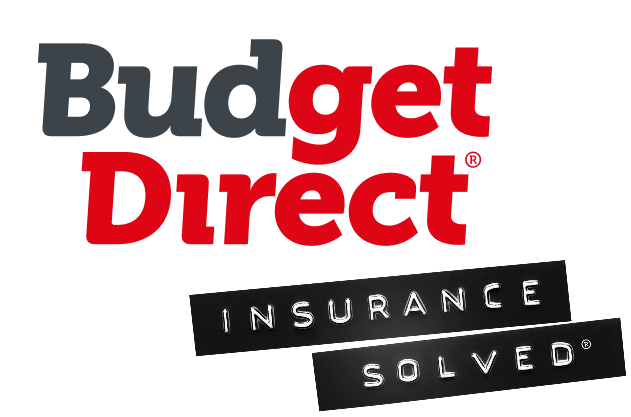Is it better to rent or buy a property?
This age-old question has been presented to Australians for decades.
In recent years, the property market and rental market have been impacted by rising property prices and fluctuating interest rates.
Depending on your personal circumstances, these changes could determine whether you can afford to purchase your own home or investment property in Australia.
For some Australians, property investment may be out of reach as they try to stay afloat amidst the recent cost of living crisis. Living in a rental property could be their only housing option.
For many years home ownership has been viewed as the ultimate status symbol for many Australians. To find out the difference between renting or buying a property, we’ve put together the pros and cons.
Pros of Buying a House
Secure Property Ownership
Being a property owner provides a sense of security and peace of mind. You can set down roots, personalise your own property for you and your family and build equity in your home.
Long gone are the days of paying rent towards someone else’s mortgage and potentially facing an increase in rental payments year-on-year.
Property Values Increase
While it's not guaranteed your property investment will increase in value, this is always a possibility and has been a trend historically.
The value of your property can depend on factors such as the type of home you own, how different Australian house styles are priced in the current market, when you purchased your home and how much the property prices are in your local market.
If your property increases in value over time and you sell, you’ll collect capital gains. Waiting until your home or investment property is at its highest value will allow you to take full advantage of selling property.
There are some easy home improvements you can do before selling. Anything from renovating your kitchen or bathroom, adding storage or painting your home may help increase its value.
You can also track ongoing property market trends and monitor your property’s value before deciding to sell.
Buying an Investment Property
Throughout the buying process, you can choose whether your purchase will be a home you live in or an investment property.
Investment properties have historically been viewed as less risky (compared to other forms of investments) and less volatile in the market. And once you’ve purchased a property you can also use your property’s equity as collateral for a mortgage loan on a new property.
You can earn rental income when you have a tenant or tenants living in your property. This can help offset property expenses, including interest on any loans used to buy the property.
Cons of Buying a House
Upfront Costs
Buying a home requires some upfront costs, which can create financial stress. And especially for first home buyers, these costs can add up quickly.
Saving for a deposit is one of the biggest upfront costs when buying a home, but it isn’t the only one.
You may also need to cover upfront costs including:
Stamp duty - This is a tax that states and territory governments charge for mortgages, transfers of property and other documents and transactions. [1]
Conveyancing costs - These are legal fees for transferring real estate ownership from one person or entity to another. [2]
Loan establishment fees - This is an upfront fee commonly charged by lenders when you apply for a loan.
- Home Insurance fees - Regardless of whether you pay for home insurance before settlement or after, you’ll need to pay for home insurance to protect your home and financial investment accordingly.
Ongoing Costs
Over time you’ll have to keep up with ongoing costs that contribute to the upkeep and maintenance of your home.
Here are some of the ongoing costs:
Body corporate fees - If you purchase a property under a strata title (a unit, apartment or townhouse) you are required to pay annual body corporate fees and special fees when unexpected costs come up.
Council rates - These are property taxes you pay based on the value of your property.
Maintenance and repair costs - These expenses may include pest control, landscaping and gardening, repairing home appliances, roof maintenance, painting and decorating and pool cleaning.
Mortgage repayments - These are the regular repayments you’ll make towards your home loan.
Household costs - This is what you would pay for monthly electricity, internet, gas and water.
- Home Insurance fees - Whether you pay your home insurance monthly or annually then these will be considered ongoing payments.
Rising Interest Rates
The Reserve Bank of Australia determines the interest rate on unsecured overnight loans between banks [3]. Interest rates have historically fluctuated due to increasing inflation and cost of living and as the economy has recovered from recession.
The optimal time to purchase a home would be when house prices aren’t as inflated, and when you’re able to save for the deposit and meet the interest payments on your loan. [4]
And when interest rates rise, buying a home may become more difficult (especially if housing prices are still growing), because it will affect your home loan borrowing power and your home loan repayments.
Pros of Renting
More Flexibility
As a renter, you can have more flexibility when looking for a property that suits your needs, lease timeline and personal circumstances. You also have the flexibility to move anywhere at any time, but may need to pay the cost of breaking a rental contract.
Less Upfront Costs
Renting can often be the more affordable housing option (and sometimes the only housing option) for many Australians.
While there are some upfront costs when renting there is nowhere near the amount of financial investment that’s needed when you buy a home. Your main upfront cost will likely be a deposit which can be worth four to six weeks of weekly rental payments and a bond.
Moving costs may also be required upfront, especially if you’re moving interstate.
No Mortgage Debt
Another advantage of signing a rental agreement is that you won’t have any mortgage debt. While you’ll still be making ongoing payments in the form of rent, you may not have to deal with the stress of incurring a large debt.
Cons of Renting
Rising Rental Payments
As a renter you are required to pay rent in weekly or monthly rental payments. The rate of rental payments can only be increased according to each state and territory's landlord laws.
Often a landlord decides to increase rent according to current rental market conditions and the Consumer Price Index (CPI) percentage.
Rent Money is “Dead Money”
Some Australians argue that paying rent towards someone else's mortgage is considered dead money.
However, considering the recent rise in property prices, this argument may have changed. While rent money is providing a landlord with rental income, it’s also providing a renter with a property to live in.
So although it’s not going towards the mortgage of that exact home, rent money is still a vital living cost for many Australians.
Lack of Personal and Financial Security
When it comes to renting there can be a lack of security, on the opposite end of home ownership.
With home ownership comes a sense of stability and an understanding that all of the decisions made about the property are within your control.
But with renting it’s generally your landlord who decides how much rent you pay and whether they’ll renew your lease. As a tenant, it’s likely that you won’t have a lot of say in the matter.
What to Consider Before You Rent or Buy
Buying Property
Here are some factors to consider before buying a property:
Do you have enough money for a deposit?
Do you have enough money to pay for other upfront costs?
Do you have enough money to sustain ongoing costs?
Are you prepared to consider the impact of possibly fluctuating interest rates?
Are you prepared for the possibility of being in debt?
Rental Property Investment
Here are some factors to consider before buying a rental property:
Are you prepared to be a landlord if you buy an investment property?
Are you prepared for the possibility of being in debt on your rental property?
Are you prepared to adhere to all rental laws in Australia?
- Do you have enough money for landlord insurance?
Renting Property
Here are some factors to consider before renting a property:
Are you prepared to be flexible when looking for a rental property?
Do you understand all the clauses when signing a rental agreement?
Are you prepared for possible rental increases?
Do you know the rental laws in place across Australia?







